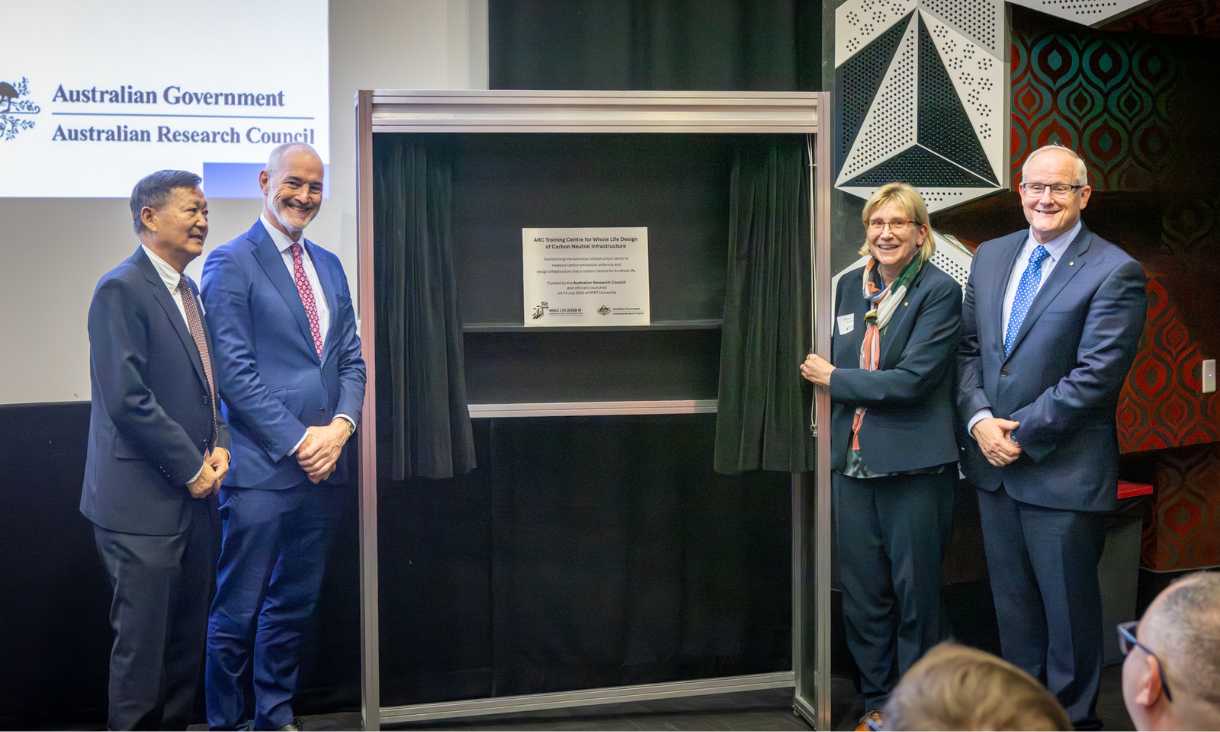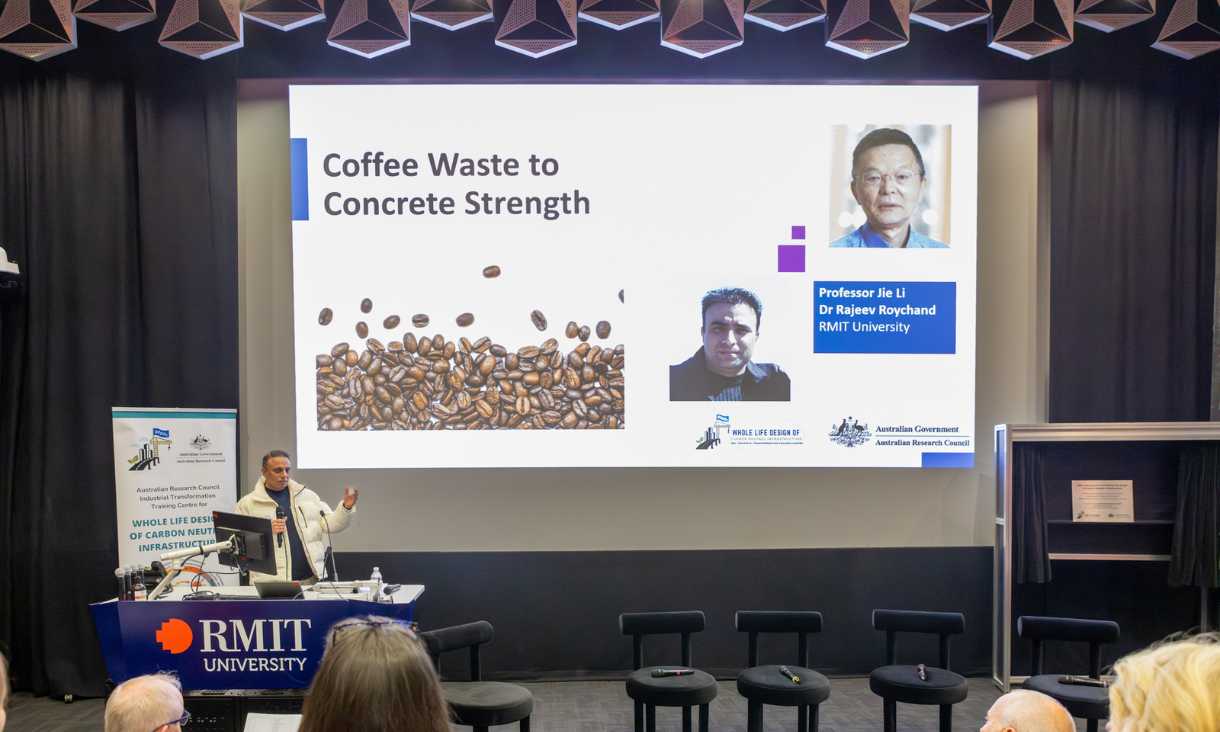The ARC Industrial transformation Training Centre for Whole-Life Design of Carbon Neutral Infrastructure (DfCO2 Centre) will upskill Australia's civil infrastructure workforce with the methodological and technological expertise necessary to produce infrastructure that is carbon neutral for its whole life.
The first of its kind globally, this pioneering initiative is funded by the Australian Research Council (ARC) with over $10M from ARC and 21 contributing industry partners.
The Centre was officially launched by ARC CEO Professor Ute Roessner at a ceremony on RMIT's City campus this week, with formalities capped off with the unveiling of a plaque to commemorate the Centre's launch.

(L-R) DfCO2 Centre Director Professor Chun-Qing Li, Professor Alec Cameron, ARC CEO Professor Ute Roessner and Distinguished Professor Calum Drummond AO
Distinguished Professor Calum Drummond AO, RMIT Deputy Vice-Chancellor Research & Innovation, lauded the Centre's focus on infrastructure as a fundamental building block of society, using it as means to solve a major societal challenge like the energy transition.
"Infrastructure is vital to civil society," he said. "It enables progress as a community, including providing access to essential services."
"Decarbonising our economy, while maintaining high productivity and living standards, is one of the grand challenges of our time."
The DfCO2 Centre brings together two vital elements; prosperity and the health of the planet."
The DfCO2 Centre brings together these two vital elements of our prosperity, helping to improve the design of our infrastructure to facilitate a healthy environment."
Professor Chun-Qing Li, the inaugural Centre Director, said the centre's mission was fulfilling a vital pillar Australia's future prosperity.
"I am honoured to spearhead our expertise and commitment to empowering the civil infrastructure workforce in achieving carbon emissions target in Australia," he said.
"Civil infrastructure plays a pivotal role in our nation's economy, prosperity, health, environment, social well-being and quality of life. However, it also contributes to over 70% of Australia's total carbon emissions."
"Consequently, there is an urgent need to train the workforce with the capability to design infrastructure that is carbon neutral for its whole life."
"By doing so, we can effectively mitigate the impact of carbon emissions on global climate change, thereby averting damages projected to reach $585 billion in Australia by 2030."
A new approach to a monumental challenge
Unlike traditional approaches where infrastructure is designed first and emissions are assessed afterward, Dfco2 is prioritising carbon neutrality from the outset.
"Just as loads and safety are integral design variables in structural engineering, we treat carbon emissions as a fundamental consideration during the design process," said Li.
"By adopting this approach, carbon neutrality can be firmly established as a new performance requirement for infrastructure."
In collaboration with stakeholders along the value chain, the Centre will identify new market opportunities, reshaping Australia's infrastructure market toward low-carbon solutions.
We are establishing a carbon neutrality index, which will ensure fair competition and drive regulatory compliance, accelerating the transition," said Li.
"Our innovations will expand sustainable infrastructure options, including low-carbon materials and maintenance strategies, and exploration of high-circularity end-of-life solutions."
A short but significant history of real-world impact
The centre has already been generating impact through its world-class team of researchers.
Dfco2 members were part of a team that created stronger concrete with roasted used-coffee grounds, reducing the long-term cost of using concrete in infrastructure, as well reduce waste going to landfills.

Dr Rajeev Roychand presenting, a part of a world-class team of researchers.
Lead author Dr Rajeev Roychand said the team developed a technique to make concrete 30% stronger by turning waste coffee grounds into biochar, using a low-energy pyrolysis processat 350 degrees Celsius.
"The disposal of organic waste poses an environmental challenge as it emits large amounts of greenhouse gases including methane and carbon dioxide, which contribute to climate change," said Roychand, from the School of Engineering in STEM College at RMIT.
Last year, the RMIT-developed innovation was used for the first time in a major infrastructure project, being laid into a footpath along a busy road in Pakenham as part of Victoria's Big Build.






